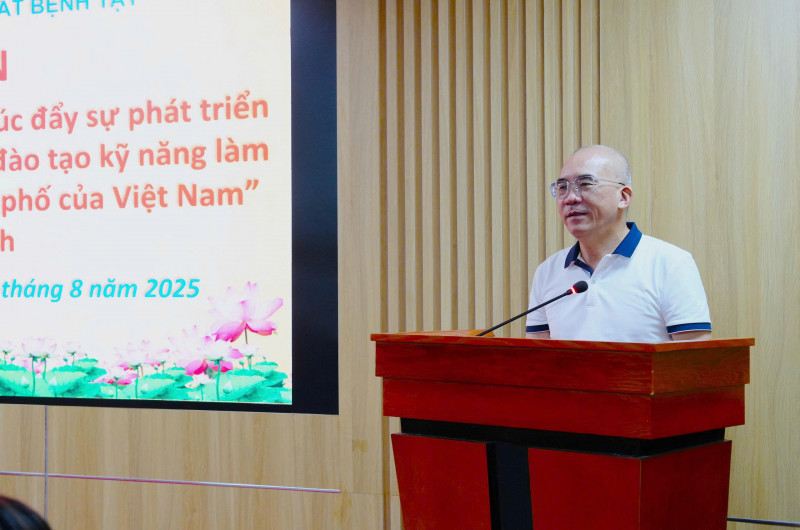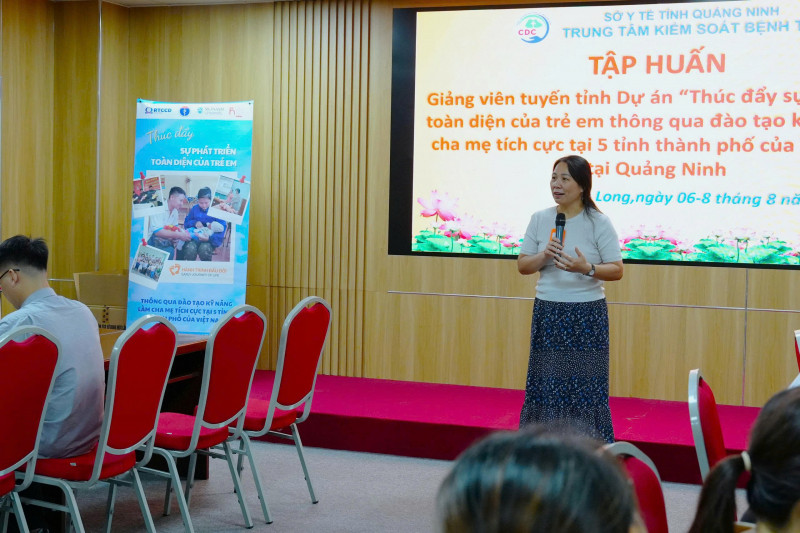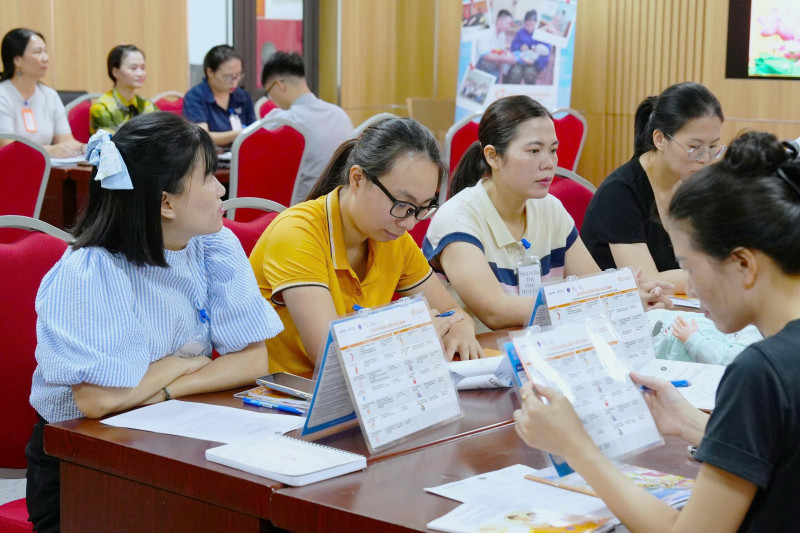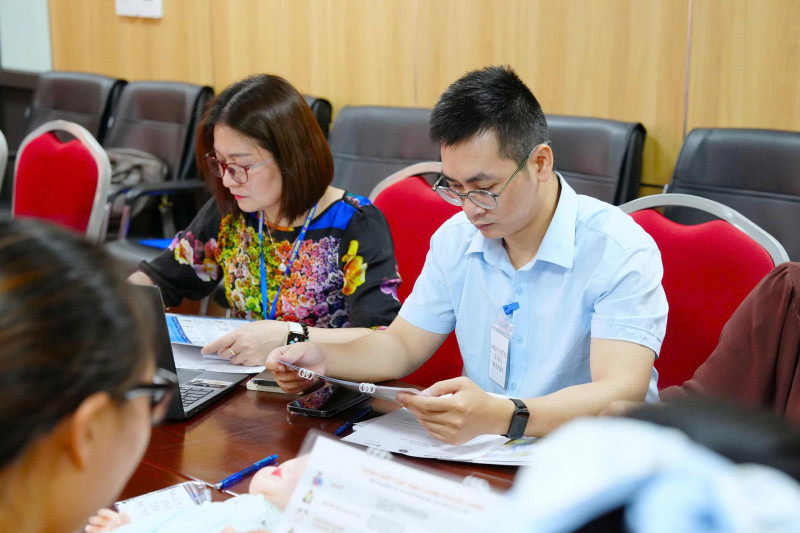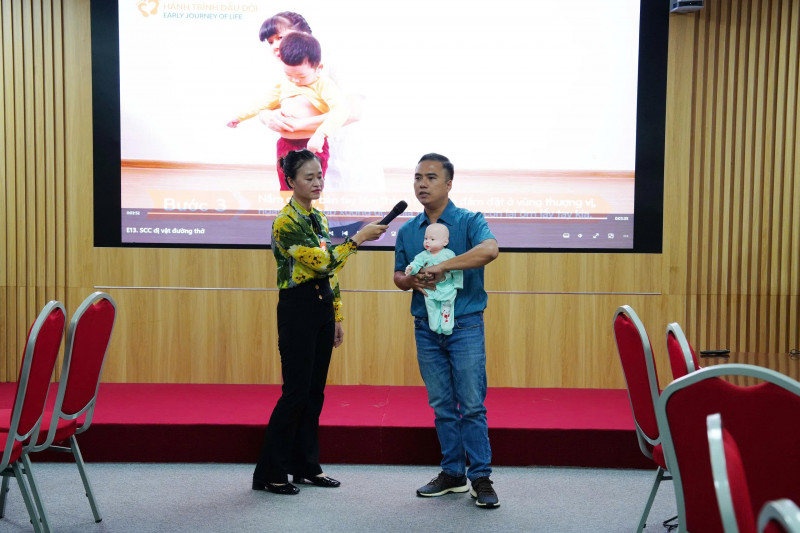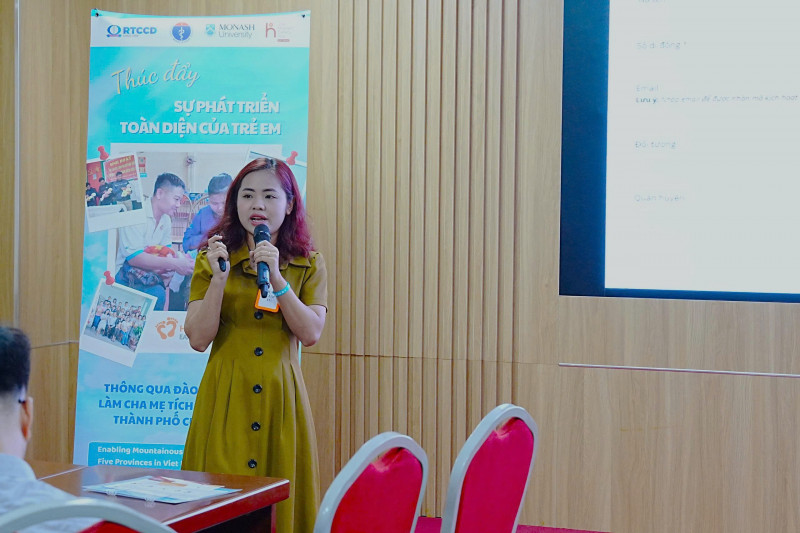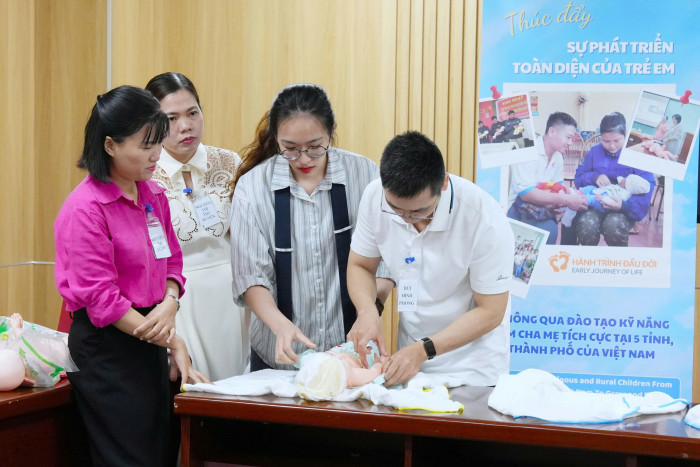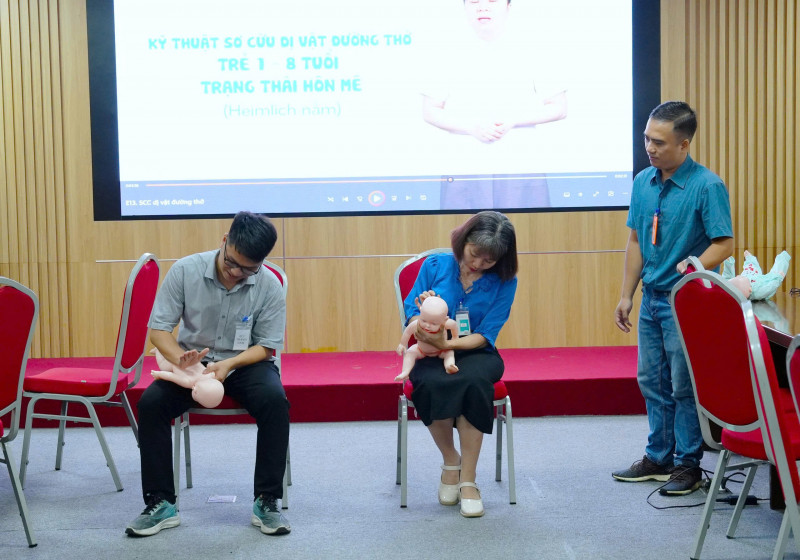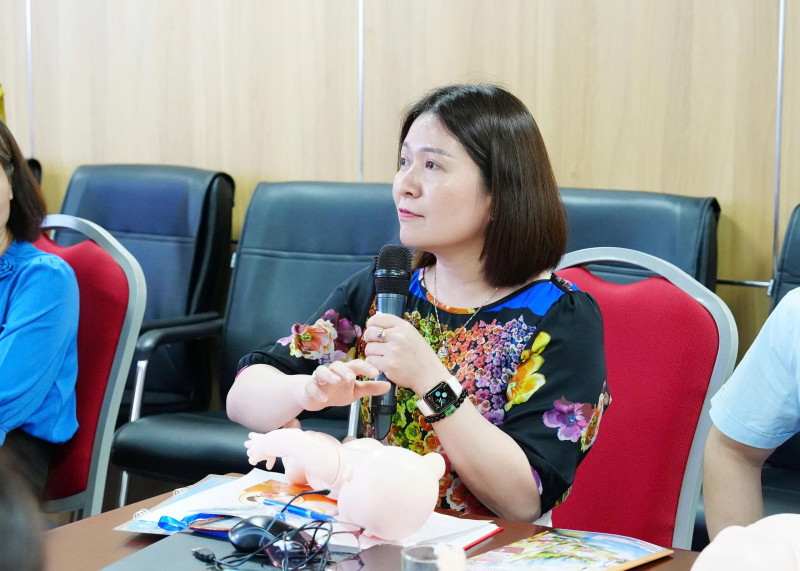On August 6, 2025, the Research and Training Centre for Community Development (RTCCD), in collaboration with the Department of Health and the Quang Ninh Center for Disease Control (CDC), organized a provincial-level Training of Trainers (ToT) workshop. This was an important kick-off activity within the “Enabling Mountainous and Rural Children from Five Provinces in Vietnam to Grow and Thrive (EM-THRIVE)” project for the 2025–2027 period in Quang Ninh. The workshop was opened by Dr. Vu Quyet Thang, Director of Quang Ninh CDC.
The three-day training (August 6–8) was designed to equip provincial health staff with comprehensive knowledge and skills. These trainers will play a key role in providing training and supervision for commune/ward health workers, as well as staff in hospitals and both public and private vaccination units across the province.
In his opening remarks, Dr. Vu Quyet Thang emphasized that the EM-THRIVE project is a vital effort to improve the quality of comprehensive childcare and nurturing throughout the province. He expressed his hope that, after the training, health staff will bring positive parenting knowledge and skills to every family, contributing to the development of a healthier and more well-rounded generation of children in Quang Ninh.
The trainees participating in the course came from provincial hospitals, public and private immunization facilities, and the Center for Disease Control. All participants had already completed the online course and obtained certificates before attending the training.
The in-person sessions primarily focused on teaching skills, facilitation of group discussions, and supervision skills for commune-level staff.
The Early Childhood Development intervention during the first 2,000 days of life is a comprehensive program covering multiple aspects, particularly mental health care for women and children—an issue that has been on the rise in the province. This focus attracted strong interest and engagement from the trainees.
Alongside learning the content, the provincial trainers showed great enthusiasm and commitment by actively engaging in practical exercises and practice-teaching sessions based on the assignments provided in the program.
